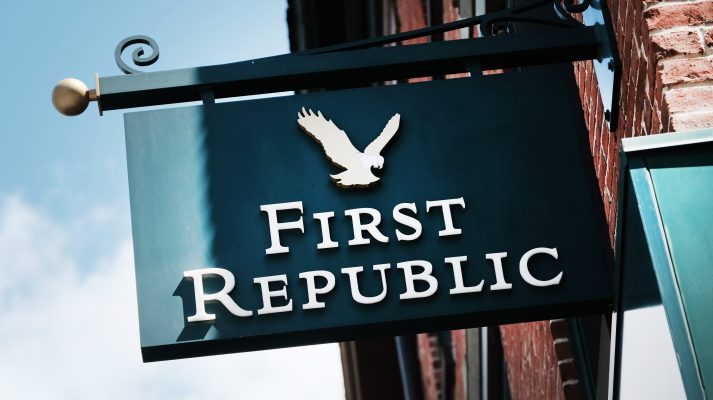First Republic Bank (FRB), on the brink of collapse in the weeks after the Silicon Valley Bank crisis, has finally fallen over, but with a relatively quick resolution into its next chapter: Today the Federal Deposit Insurance Corporation (FDIC) announced that it was being closed by the California Department of Financial Protection and Innovation, that the FDIC was appointed as receiver and that the FDIC would be selling the assets to JPMorgan.
Its assets and deposits total just over $330 billion combined.
Specifically, “to protect depositors, the FDIC is entering into a purchase and assumption agreement with JPMorgan Chase Bank, National Association, Columbus, Ohio, to assume all of the deposits and substantially all of the assets of First Republic Bank,” it said.
The FDIC also confirmed deposits will continue to be insured by the FDIC at an estimated cost of about $13 billion to its insurance fund. The deal will cover assets of $229.1 billion and $103.9 billion in total deposits. JPMorgan is purchasing all assets and deposits, along with 84 offices in eight states, with all depositors of FRB now customers of JPMorgan Chase.
The news comes after several days of speculation that the FRB would collapse, sending the stock into a death spiral. JPMorgan, along with PNC, were among the banks that submitted bids over the weekend. The FDIC called the process “highly competitive.”
Banking partner
Like Silicon Valley Bank, First Republic has been a major banking partner to the world of technology as it grew into a huge, and very valuable, industry, providing current accounts and other banking and financial services to a range of startups, and pointedly to a number of investment firms, through its dedicated technology division.
But that meant it would almost certainly fall into the blast radius of SVB as it collapsed.
To avoid a contagion effect, First Republic was quick to move on messaging about its own state of stability in the wake of SVB’s failure. So just as SVB started selling its assets — at the same time, in fact, that SVB announced a sale of its U.K. business to HSBC — First Republic was bolstering its position with massive funding injections to bring its reserves to $70 billion. One of those big funders was the FDIC. The other? JPMorgan.
For a while it looked like First Republic pulled it off, with shares bouncing back after the crisis at SVB appeared to move toward a resolution.
Still, it looks like this was not enough. Faltering confidence in companies that were too dependent on the same sector as SVB sent people running from First Republic both as customers and investors.
The FDIC has had to face up to its own drama and criticism — some blame SVB’s collapse on U.S. regulators not acting quickly or decisively enough before it was too late — and so this was a relatively quick move on its part. While the estimated cost to its Deposit Insurance Fund is about $13 billion, the final figure will be determined when it ceases to be in receivership.
Alongside this deal, the FDIC, JPMorgan Chase Bank and National Association, “are also entering into a loss-share transaction on single family, residential and commercial loans it purchased of the former First Republic Bank,” it added. The FDIC is the receiver, while JPMorgan Chase Bank and National Association “will share in the losses and potential recoveries on the loans covered by the loss-share agreement.” It’s not clear what the value is of that aspect of the deal.
In taking on insured and uninsured deposits, JPMorgan is, unsurprisingly, positioning itself as standard bearers and ensurers of financial stability through the turbulence. (Never mind that big banks have had their own very disastrous story lines in recent years and months.)
“In carrying out this transaction, JPMorgan Chase is supporting the U.S. financial system through its significant strength and execution capabilities,” it noted in a statement.
“Our government invited us and others to step up, and we did,” said Jamie Dimon, chairman and CEO of JPMorgan Chase, in the statement. “Our financial strength, capabilities and business model allowed us to develop a bid to execute the transaction in a way to minimize costs to the Deposit Insurance Fund.”
Dimon added, “This acquisition modestly benefits our company overall, it is accretive to shareholders, it helps further advance our wealth strategy, and it is complementary to our existing franchise.”
The bigger questions remain whether any of these stabilizing moves will longer term help the tech industry, and the U.S. and global economies overall, stave off wider contraction.
Updated with further comment from JPMorgan.
